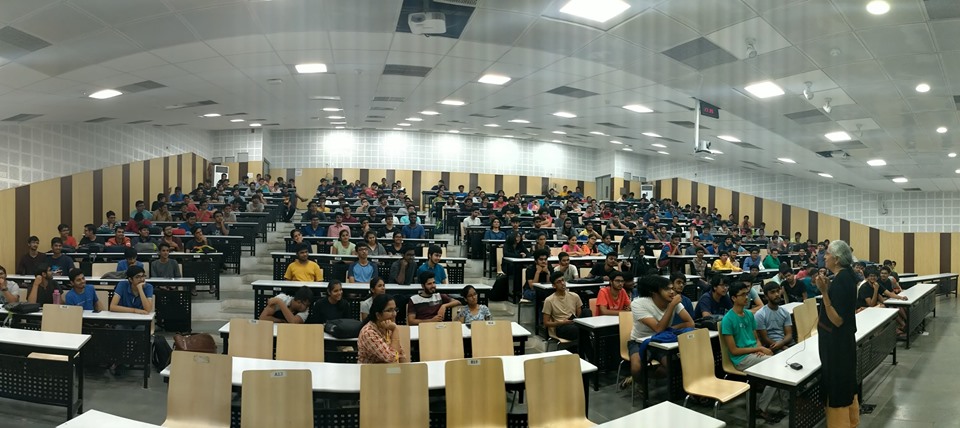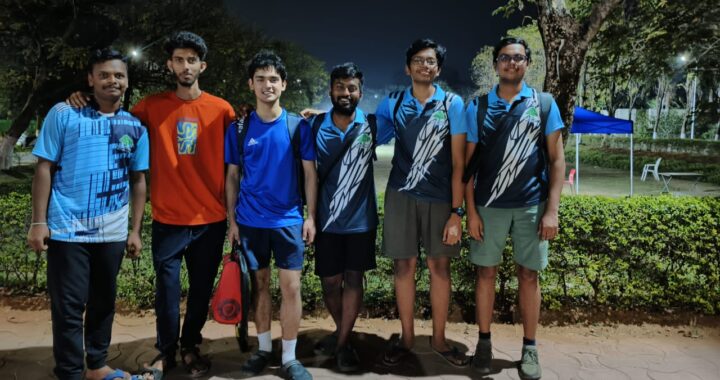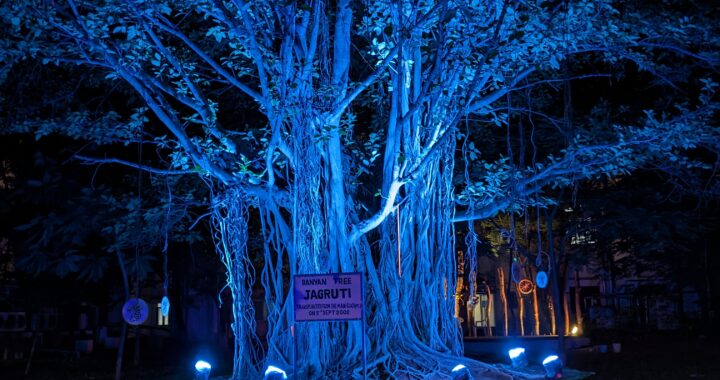FSIS UG2k19 (2019)

This year during the “Faculty-Student Interaction Session” (FSIS) for the fresher batch of 2019, the main focus was the online judge (OJ) and the workload ECE/ECD students have to face in their first semester. While it was undoubtedly an interactive session, some students were disappointed to see that some concerns were met with a response along the lines of ‘Life is much better than it was earlier’, rather than being proposed a solution that would alleviate the problem.
Bringing up an age-old topic, students appealed for LAN connection in the hostel rooms from day one. Unfortunately, the director declined, stating that they knew students would end up wasting time in the first semester itself and that students should be given such freedom only once they understand how to manage themselves.
Interestingly, there were absolutely no questions about MOSS and how the OJ submissions are checked in the course ‘Computer Programming’. A grading scheme was proposed by the students to get partial marks for partially correct answers instead of losing the entire question. Further, students claimed that they should be allowed to choose the faculty that they want to learn from, declaring that they couldn’t understand what happened in CPro classes once Prof. Vineet Gandhi stopped teaching them. Specifically, they claimed that his skill could have been better suited for the harder latter topics in the course rather than the introduction.
The other core argument was on the astounding number of assignments and quizzes ECE/ECD students have to go through, with students even asking why the number of assignments in NeSS is more than Real Analysis and DSM combined! Prof. Jayanthi responded by saying that she understands that the number of assignments is really high, even stating that there should be a rule that not more than one assignment should be given to a student in any particular course in a week. While no agreeable solution was reached, she ended the discussion by joking that “Dean Jayanthi will talk to Prof. Jayanthi about this issue”
One of the most interesting arguments raised this time was that students feel as if they are missing out on enjoying their college life, and feel jealous of what students in other colleges do and how often they have fests. The college responded by arguing that they have an image to maintain which requires hard work from the student’s side, something that requires compromise. A similar point was brought up by students saying that the college should a lot a larger budget for student recreation activities including DJ nights.
Some other arguments that were brought up included the water problems in Parijat, to which the college replied with the assurance of fixing it at the earliest, request for sale of cold drinks within the campus, and a 24 hr canteen and workspace.
Overall, the FSIS proved to be a session for faculty to view student responses to an ever-changing campus. While some of the points may have been critical of the institute, it is refreshing to see that criticism is welcome. In a Facebook post, the director commended the students for challenging the institute and being vocal. It remains to be seen how these issues will be resolved.

 Cleaning up the Mess?
Cleaning up the Mess?  The Mess-y Situation
The Mess-y Situation  Qu’ils mangent de la grenouille! (Let Them Eat Frogs!)
Qu’ils mangent de la grenouille! (Let Them Eat Frogs!)  Tale of Two Cheenties
Tale of Two Cheenties  Peace of mind.
Peace of mind.  Boats and Valorant
Boats and Valorant  A perspective on sports in IIIT
A perspective on sports in IIIT  Paintings of IIIT
Paintings of IIIT  The Tale of Jagruti
The Tale of Jagruti